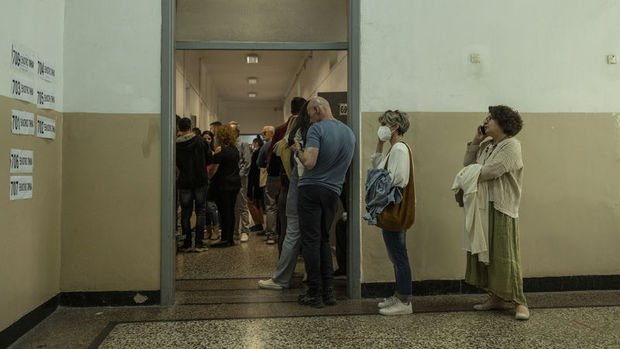Greece goes to the polls again
In Greece, where no party achieved a majority to form a government on its own in the elections held on May 21, voters are heading to the polls again. Following the failure to form a government in the general elections held in Greece on May 21 after 4 years, voters are heading to the polls again as required by the constitution. According to the results of the ballot boxes on May 21, the New Democracy Party, which governed the country alone in the 2019-2023 term, came in first, but due to the new election system, it could not reach the 151 seats required to come to power on its own. The 40.79 percent of the vote that New Democracy received allowed the party to send 146 deputies to the 300-seat parliament. The main opposition party of the 2019-2023 term, the Radical Left Alliance (SYRIZA), followed New Democracy with 20.07 percent of the vote and 71 deputies. The center-left Panhellenic Socialist Movement (PASOK), which has been New Democracy’s number one rival for decades but whose vote share has declined during the economic crisis, regained some of its lost power and came in third place with 11.46 percent of the vote and 41 seats. The Communist Party of Greece (KKE), one of the established parties in the Greek Parliament, won 7.23 percent of the vote and 26 seats, while the Greek Solution Party, known for its far-right stance, won the right to be represented in parliament with 4.45 percent of the vote and 16 seats. The number of parties that passed the 3 percent election threshold and won entry to parliament is now 5. The first application of the new election system According to the election system implemented for the first time in Greece this year, the first party that emerges from the ballot box is not given an extra seat, but if a government cannot be formed, the first party is given an extra 20 to 50 seats in the 300-seat parliament, provided that it receives at least 25 percent of the vote, depending on the percentage of votes, when the government is not formed a second time. Thus, the impasse in the coalition search is being overcome with the support given to the first party. A government could not be formed on May 21st In the general elections held in the country on May 21st, no party had the vote rate to come to power alone, while New Democracy missed this opportunity with only 5 seats, leading to a second trip to the polls. New Democracy leader Kyriakos Mitsotakis, in a statement he made immediately after the election, interpreted the results of the ballot box as indicating that the people wanted a strong government that came to power alone instead of a coalition. The bureaucratic process for coalition work was completed, but the leaders did not actually make an effort to form a coalition. The fact that New Democracy would not agree to any coalition and targeted the extra seats that would be given when they went to the polls a second time turned the coalition work into a technical process that only needed to be overcome. New Democracy outpaces SYRIZA in the polls According to a poll conducted by the Pulse research company for SKAI TV, the difference between New Democracy and SYRIZA is 19.5 percent. In a poll conducted by the ALCO research company on behalf of Alpha TV, the difference between New Democracy and SYRIZA is 21.1 percent. According to the poll, New Democracy emerged with 39.5 percent support, while SYRIZA, which came in right behind, received 18.4 percent of the vote. The PASOK-KINAL alliance, which appears third in all polls, is aiming to rise to the main opposition by regaining the center-left votes it lost to SYRIZA during the economic crisis, despite having around 10 percent of the vote.


